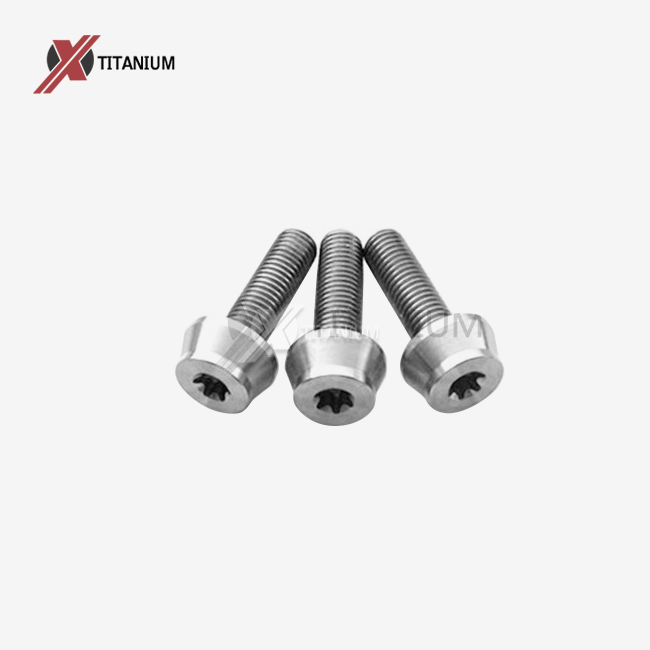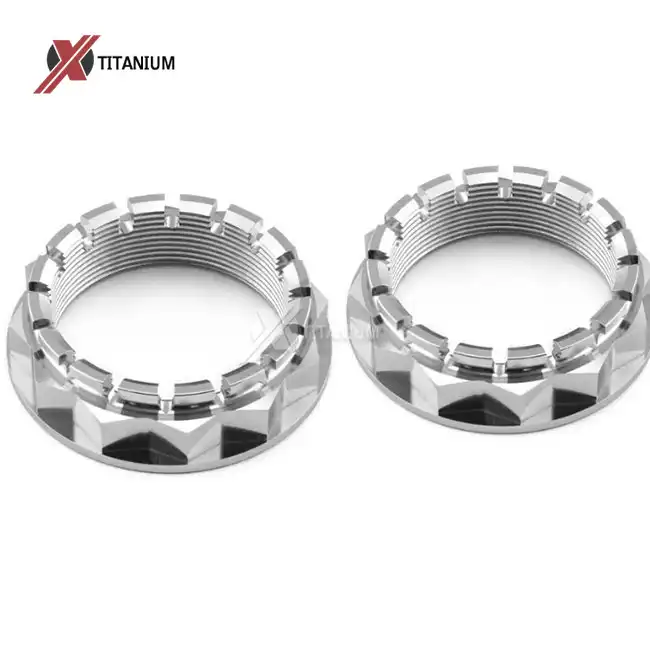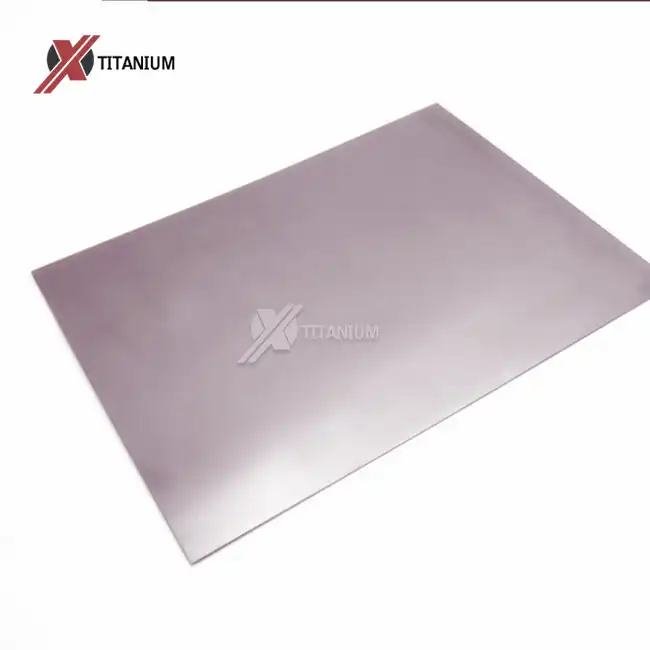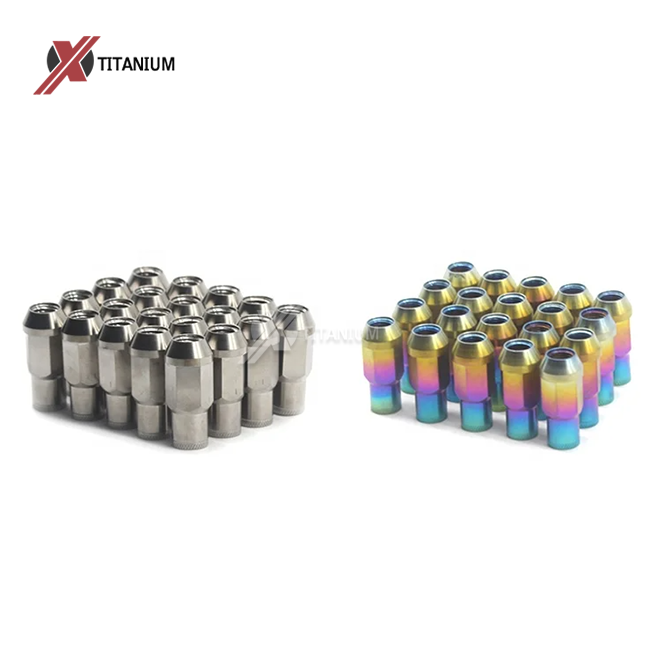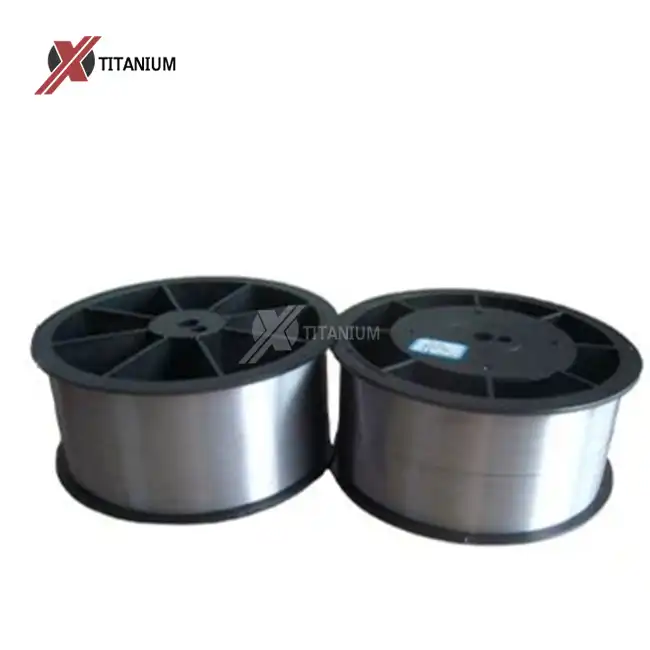The Advantages of Titanium Bottle Cage Bolts in Marine Applications
Unparalleled Corrosion Resistance
Titanium bottle cage bolts boast exceptional corrosion resistance, a crucial attribute for marine environments. Unlike traditional steel or aluminum fasteners, titanium forms a stable, self-healing oxide layer when exposed to oxygen. This natural protective barrier shields the underlying metal from corrosive elements, including saltwater, chlorides, and other aggressive substances commonly found in marine settings. The result is a fastener that maintains its structural integrity and appearance even after years of exposure to harsh coastal conditions.
Lightweight Yet Strong
Another significant advantage of titanium bottle cage bolts in marine applications is their impressive strength-to-weight ratio. Titanium alloys used in these fasteners, such as Grade 5 (Ti-6Al-4V), offer a tensile strength comparable to steel while weighing approximately 45% less. This lightweight characteristic is particularly beneficial in marine environments, where every gram counts in vessel performance and fuel efficiency. Despite their reduced weight, titanium bottle cage bolts do not compromise on strength, ensuring secure attachment of components even in high-stress marine applications.
Resistance to Galvanic Corrosion
Galvanic corrosion is a common issue in marine environments, especially when dissimilar metals come into contact in the presence of an electrolyte like seawater. Titanium bottle cage bolts exhibit excellent resistance to galvanic corrosion, making them compatible with a wide range of materials commonly used in marine construction, including stainless steel, aluminum, and carbon fiber composites. This compatibility reduces the risk of accelerated corrosion and ensures long-lasting, reliable connections in marine assemblies.
Durability and Longevity of Titanium Bottle Cage Bolts in Saltwater Conditions
Extended Lifespan in Harsh Environments
The durability of titanium bottle cage bolts in saltwater conditions is truly remarkable. While traditional fasteners may succumb to corrosion and degradation within months or a few years, titanium bolts can maintain their integrity for decades. This extended lifespan translates to reduced maintenance requirements and lower long-term costs for marine applications. Boat owners, shipyards, and marine engineers can rely on titanium bottle cage bolts to provide lasting performance in even the most challenging saltwater environments.
Resistance to Pitting and Crevice Corrosion
Saltwater environments are notorious for causing pitting and crevice corrosion in many metals. Titanium bottle cage bolts, however, demonstrate exceptional resistance to these forms of localized corrosion. The stable oxide layer that forms on titanium's surface prevents the initiation and propagation of pits and crevices, even in areas where water can become stagnant or trapped. This resistance ensures that the bolts maintain their structural integrity and aesthetic appearance, even in areas of marine structures that are particularly susceptible to corrosion.
Temperature and Chemical Stability
Marine environments often subject materials to fluctuating temperatures and exposure to various chemicals. Titanium bottle cage bolts excel in these conditions due to their excellent temperature stability and chemical resistance. They maintain their mechanical properties across a wide range of temperatures, from the freezing waters of arctic regions to the warm seas of tropical climates. Additionally, titanium's resistance to a broad spectrum of chemicals, including those used in marine antifouling treatments and cleaning agents, further enhances the bolts' durability and longevity in saltwater applications.
Practical Considerations for Using Titanium Bottle Cage Bolts in Marine Settings
Installation and Maintenance Best Practices
While titanium bottle cage bolts offer superior corrosion resistance, proper installation and maintenance can further enhance their performance in marine settings. When installing these bolts, it's crucial to use compatible washers and nuts, preferably made of titanium or a compatible material, to prevent galvanic corrosion at contact points. Applying a small amount of anti-seize compound specifically formulated for use with titanium can facilitate future disassembly if needed. Regular inspections, although less frequent than with other materials, are still recommended to ensure optimal performance and identify any potential issues early on.
Cost Considerations and Long-Term Value
The initial cost of titanium bottle cage bolts is typically higher than that of stainless steel or other conventional marine fasteners. However, when evaluating the total cost of ownership, titanium often emerges as the more economical choice for marine applications. The extended lifespan, reduced maintenance requirements, and elimination of frequent replacements contribute to significant long-term savings. For high-performance marine vessels, offshore structures, and other critical marine applications where reliability and longevity are paramount, the investment in titanium bottle cage bolts is often justified by their superior performance and reduced lifecycle costs.
Environmental Impact and Sustainability
In an era of increasing environmental awareness, the sustainability aspects of marine materials are gaining importance. Titanium bottle cage bolts offer several environmental advantages in marine settings. Their exceptional durability reduces the need for frequent replacements, minimizing waste and resource consumption over time. Additionally, titanium is 100% recyclable, allowing for responsible end-of-life management. The material's corrosion resistance also eliminates the need for protective coatings or treatments that may contain environmentally harmful substances, further reducing the ecological footprint of marine structures and vessels.
Conclusion
Titanium bottle cage bolts stand out as a superior choice for marine environments, offering unparalleled corrosion resistance, strength, and longevity in saltwater conditions. Their ability to withstand the harsh elements of marine settings while maintaining structural integrity makes them an invaluable asset for boat manufacturers, marine engineers, and watercraft enthusiasts alike. While the initial investment may be higher, the long-term benefits in terms of durability, reduced maintenance, and environmental sustainability make titanium bottle cage bolts a wise choice for discerning marine professionals and enthusiasts.
For those seeking high-quality titanium bottle cage bolts and other titanium products for marine applications, Baoji Chuanglian New Metal Material Co., Ltd. offers a wide range of solutions tailored to meet the demanding requirements of the marine industry. With our extensive experience in titanium manufacturing and commitment to quality, we provide products that ensure lasting performance in even the most challenging marine environments. To learn more about our titanium bottle cage bolts and other marine-grade titanium products, please contact us at info@cltifastener.com or djy6580@aliyun.com.
